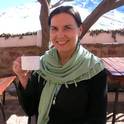Contribution to Book
New Times, New Challenges, and What Transformative Educational Leaders Do
Urban education: A Model for Leadership and Policy
(2012)
Abstract
Many factors complicate the education of urban students. Among them have been issues related to population density; racial, ethnic, cultural, and linguistic diversity; poverty; racism (individual and institutional); and funding levels. Although urban educators have been addressing these issues for decades, placing them under the umbrella of "urban education" and treating them as a specific area of practice and inquiry is relatively recent. Despite the wide adoption of the term a consensus about its meaning exists at only the broadest of levels. In short, urban education remains an ill-defined concept. This comprehensive volume addresses this definitional challenge and provides a 3-part conceptual model in which the achievement of equity for all -- regardless of race, gender, or ethnicity – is an ideal that is central to urban education. The model also posits that effective urban education requires attention to the three central issues that confronts all education systems (a) accountability of individuals and the institutions in which they work, (b) leadership, which occurs in multiple ways and at multiple levels, and (c) learning, which is the raison d'être of education. Just as a three-legged stool would fall if any one leg were weak or missing, each of these areas is essential to effective urban education and affects the others.
Disciplines
Publication Date
2012
Editor
Karen Symms Gallagher, Rodney Goodyear, Dominic Brewer, Robert Rueda
Publisher
Routledge
ISBN
9780415872416
Citation Information
Gilberto Arriaza and Rosemary Henze. "New Times, New Challenges, and What Transformative Educational Leaders Do" Urban education: A Model for Leadership and Policy (2012) Available at: http://works.bepress.com/rosemary_henze/16/
